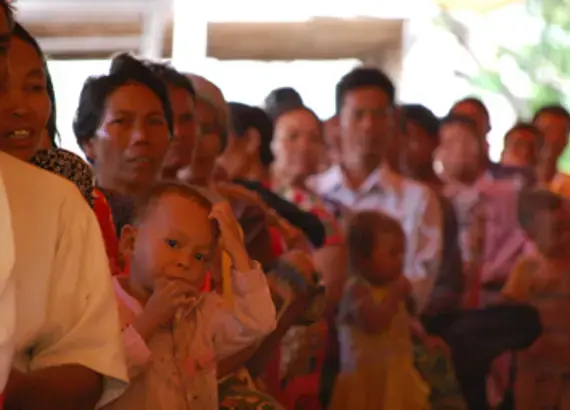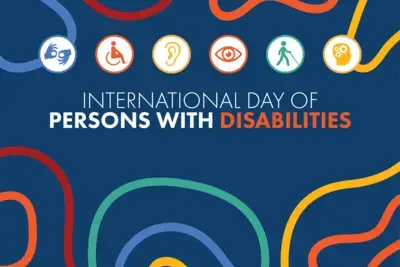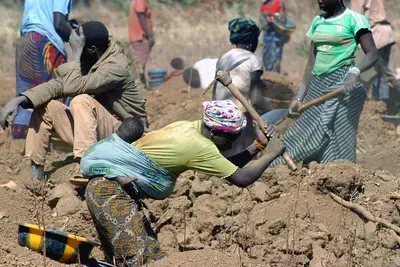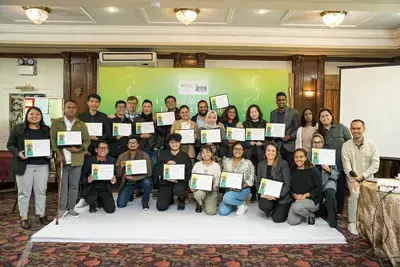
Success Story
Forums Show Cambodians Concerned about Inequity and Corruption
Land disputes, lack of infrastructure and corruption were among the major concerns of more than 11,000 Cambodians who took part in a year-long series of 24 forums with their elected representatives in parliament. The results of the gatherings were published in a recent NDI report.
The forums, which have been conducted each year since 2004, provide opportunities for Cambodians to speak face to face with members of Cambodia’s National Assembly (MPs), who they would otherwise rarely get to see. MPs seldom interact with constituents, and there is no formal way for citizens to contact their elected representatives, who spend most of their time in cities and not in the rural areas where the constituents live.
Representatives from all five parties in the National Assembly took part in the NDI-sponsored dialogues, which were held from November 2010 to September 2011. Questions in the sessions, which resemble town hall meetings, focused on issues affecting constituents’ daily lives, such as improving roads to make it easier to transport crops and doing away with bribes that are often needed to get government-issued identification cards. People also said they were unhappy that they had to travel long distances to meet with MPs after local authorities could not or would not solve their problems.
As a result of the dialogues, many legislators took action to address the issues raised. They wrote to government officials, filed reports with ministries and met with local authorities. One MP from Kratie province, working with the National Assembly president, was able to secure compensation for seized land for 16 constituent families.
Because of their lack of contact with MPs, constituents have a narrow understanding of how the legislators can help solve their problems, a situation also addressed by the dialogues. In the same vein, politicians often have little knowledge of constituents’ concerns, so the direct contact provided them with greater insight into what was on voters’ minds.
 A villager addresses his parliamentary representatives. Photo Credit: Tassos Coulaloglou
A villager addresses his parliamentary representatives. Photo Credit: Tassos CoulaloglouNDI partnered with eight local organizations and community volunteers to prepare for the forums. The Institute met with village chiefs, heads of commune councils and other local authorities to set the stage for the meetings and give the officials a better understanding about the issues affecting their areas.
Inequality was an underlying theme of the dialogues. As one citizen said, “Government policies always favor rich people.”
Key topics at the dialogues included:
- Land conflicts. Cambodians spoke of difficulties keeping their property from being taken by powerful local businessman, private companies and military personnel, and said that local authorities failed to help them. In several provinces, citizens said their homes had been razed or they were displaced from their land without compensation. People criticized government concession policies and demanded to know why companies appeared to be favored over citizens. Current policies allow the government to give companies land owned by citizens without appropriately compensating landowners. During the forums, politicians gave their party’s stance on the issue. The ruling Cambodian People’s Party (CPP) said that any land concessions followed Cambodian law.
- Poor infrastructure and irrigation systems. Citizens described how these problems were keeping them impoverished. They said bad roads prevent farmers from getting their crops to markets and poor irrigation systems make it difficult to grow crops. Citizens asked for more roads, dams and better access to electricity. CPP representatives said that development happens slowly, and some told citizens to “work harder” to improve their living conditions.
- Corrupt local authorities and illegal contracts. Constituents said government corruption exacerbated land conflicts and infrastructure concerns because impoverished Cambodians could not receive adequate compensation when they are in a conflict with a wealthy or powerful person or company. Lack of citizens’ rights in these situations was a common refrain. People also brought up bribery and vote buying. Legislators from opposition parties urged unsatisfied voters to choose different leaders in the upcoming elections.
NDI’s constituency dialogues in Cambodia are funded under a grant from the U.S. Agency for International Development.
Related:
Published Feb. 24, 2012



